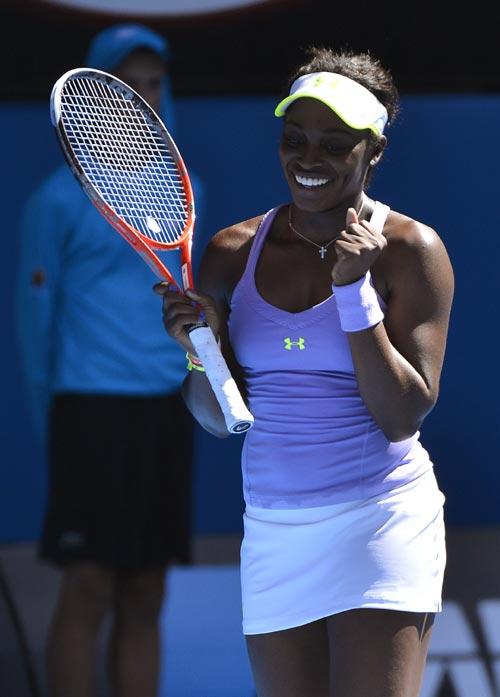
Serena Williams went down smashing rackets and screaming as she bowed out of the Australian Open quarter-finals on Wednesday, hampered by a back injury and beaten in three sets by fellow American Sloane Stephens.
The injury robbed Williams of her serve - the most effective weapon in women's tennis - but teenager Stephens will take much credit for holding her nerve to finish off the ailing 15-times Grand Slam champion.
Roger Federer's bid to emulate Williams as a five-times Melbourne Park champion survived a five-set test at the hands of an inspired Jo-Wilfried Tsonga and the Swiss marched on to a last-four meeting with Andy Murray, who crushed Jeremy Chardy.
Stephens will have 24 hours to prepare for her first Grand Slam semi-final against defending champion and world number one Victoria Azarenka, who came through a minor scare to beat Russian Svetlana Kuznetsova.
"Oh my goodness," said Stephens, teary-eyed and almost lost for words after beating a player whose picture once adorned her bedroom wall. "This is so crazy, but oh my goodness, I think I'll put a poster of myself up now."
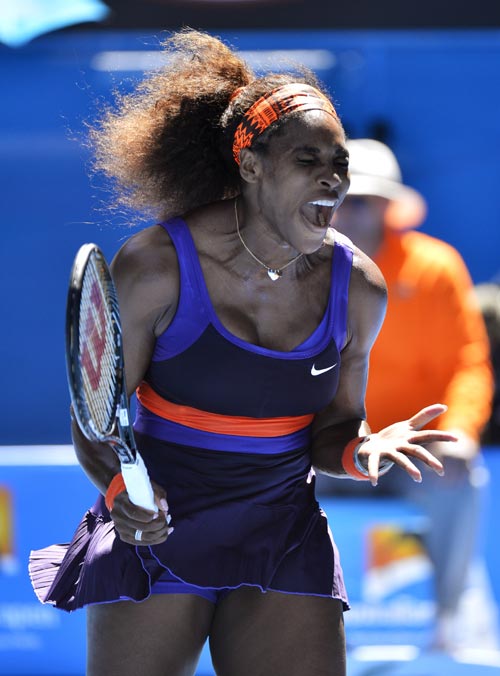
The 31-year-old Williams, odds-on favourite to claim a third successive Grand Slam crown, pulled up to avoid hitting the net after a backhand drop shot early in the second set and shrieked as she felt the full force of a back spasm.
After lengthy treatment, Williams continued but the power of her serve and groundstrokes were considerably diminished and 19-year-old Stephens took advantage in impressive fashion to run out a 3-6, 7-5, 6-4 winner in Rod Laver Arena.
Williams, who smashed her racket to pieces in frustration in the third set, tried graciously to honour the locker-room code that you do not diminish an opponent's achievement but was unable to wholly play down the significance of the injury.
"I even screamed on the court," she said. "I was like, 'ahh'. I totally locked up after that. It was...a little painful. "I couldn't really rotate after that, which I guess is normal. I don't know.
"It was giving me trouble. But it was fine. I think my opponent played well and was able to do a really good job."
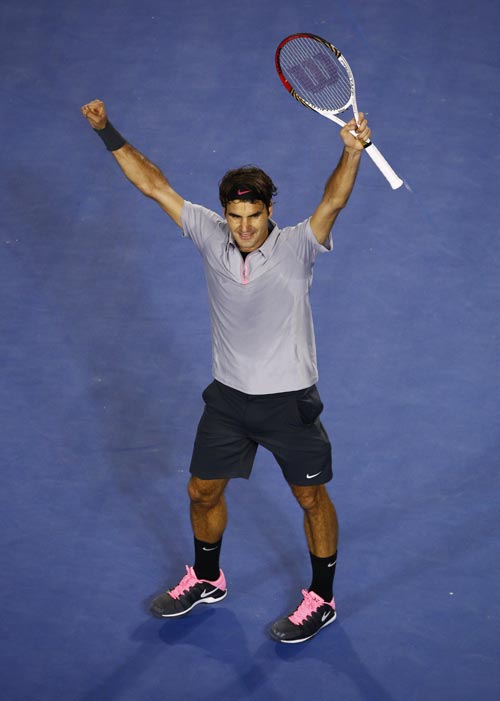
Federer, also 31, started his match against Tsonga by breaking the Frenchman but it was just one of nine breaks in an absorbing three-and-a-half-hour contest that see-sawed back and forth all evening.
Tsonga, a finalist here in 2008, was tactically smart, sent down 20 booming aces and produced some brilliant forehands that overpowered even Federer's defences at times.
The 17-times Grand Slam champion rode his luck on occasions, too, but had something in reserve for the deciding set and finally overcame the seventh seed's resistance with a smash on his fifth match point to clinch a 7-6, 4-6, 7-6, 3-6, 6-3 win.
"It was a tough close for sure, but the whole match was tough. Every set could have gone either way," said Federer, whose victory ensured the top four seeds made the semi-finals for the 15th time at a Grand Slam in the professional era.
"With Jo, you never know what he's going to come up with. I feel a bit lucky to come through but feel I played some great tennis and Jo did too."
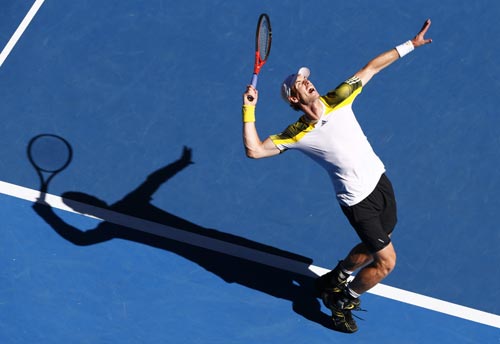
Murray, the U.S. Open champion, ruthlessly exploited Frenchman Chardy's weaker backhand with a number of successful raids to the net in his 6-4, 6-1, 6-2 victory.
The third-seeded Briton had spent just over seven hours on court in his previous four matches and needed only another 111 minutes to complete a one-sided hammering of the world number 36.
"I thought I did a pretty good job throughout the match," the Scot, who was wearing a T-shirt reading "PREPARE, ATTACK, DESTROY" for his news conference, said with typical understatement.
"There were a couple of games I could have done a bit better on, but for the most part it was good."
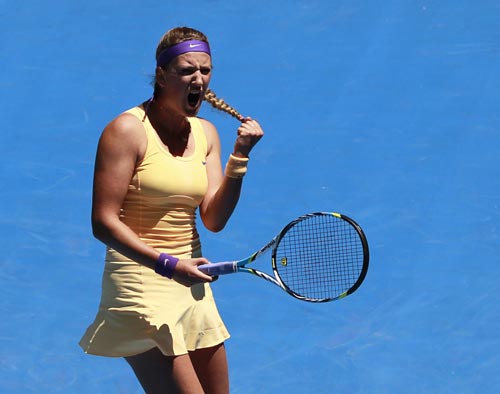
Azarenka had barely been tested on her way to the last eight and the 77-minute first set against former U.S. Open and French Open champion Kuznetsova was longer than her entire fourth-round match.
Kuznetsova, refreshed after missing the entire back end of last season with a knee injury, seemed to catch Azarenka by surprise and raced to a 4-1 lead in bright morning sunshine.
Azarenka rode the storm, however, and the slices with which the Russian world number 75 had bamboozled the Belarussian grew steadily less effective as the world number one drove home her advantage to win 7-5 6-1.
"It was important to take the opportunities to kind of make a big statement," said Azarenka. "I think I did that and I turned things around into my own way."